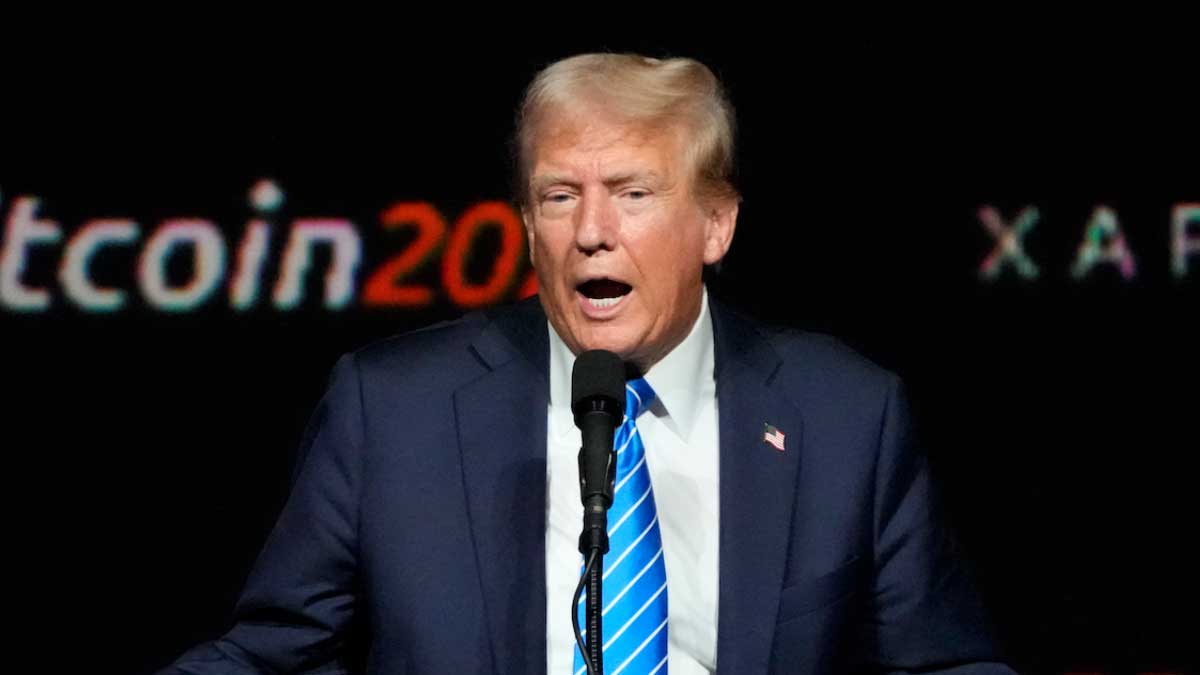- Home
- Billionaires
- Investing Newsletters
- 193CC 1000
- Article Layout 2
- Article Layout 3
- Article Layout 4
- Article Layout 5
- Article Layout 6
- Article Layout 7
- Article Layout 8
- Article Layout 9
- Article Layout 10
- Article Layout 11
- Article Layout 12
- Article Layout 13
- Article Layout 14
- Article Sidebar
- Post Format
- pages
- Archive Layouts
- Post Gallery
- Post Video Background
- Post Review
- Sponsored Post
- Leadership
- Business
- Money
- Small Business
- Innovation
- Shop
Recent Posts
Bitcoin Surges to $73,000 Amid Election and Inflation Concerns

Bitcoin has surged to an impressive $73,544, marking its highest price since March and reflecting the volatility and dynamics of the cryptocurrency market as the U.S. presidential election and inflation concerns loom. The cryptocurrency market, valued at approximately $1.4 trillion, has experienced a significant uptick as investors react to various economic indicators and political developments.
On Tuesday at around 3 p.m. EDT, Bitcoin’s price increased by nearly 6%, reaching levels not seen since March 14. This recent spike elevates Bitcoin’s overall gain for October to about 13%, significantly outperforming the S&P 500, which has only seen a 1% rise this month. The enthusiasm for Bitcoin has also extended to other major cryptocurrencies. Ethereum, for instance, experienced a 4% increase, climbing to a 10-day high of $2,637. Similarly, Binance Coin rose 2% to reach an eight-day high of $608, while Solana gained 2% and hit a three-month peak of $182.
The gains in cryptocurrency prices are also reflected in the stock market, particularly among companies engaged in Bitcoin mining, a process that requires substantial energy and resources. Shares of Core Scientific, Marathon Digital, and Riot Platforms have all seen significant increases, each rising by at least 15% throughout October. This positive momentum indicates that the market is responding favorably to the broader economic landscape.
Several factors have contributed to the recent rally in Bitcoin and other cryptocurrencies. Prominent investors, including hedge fund billionaire Paul Tudor Jones, have advocated for Bitcoin as a hedge against inflation. As government policies supported by presidential candidates like Kamala Harris and Donald Trump are anticipated to add trillions to the national debt, many investors are seeking refuge in assets like Bitcoin. The Federal Reserve’s recent decision to lower interest rates has led skeptics to question the efficacy of monetary policy in addressing rising inflation levels. As a result, traditional safe-haven assets, such as gold, have also seen price increases; gold is up 6% since the Fed’s rate cut on September 18.
Moreover, Bitcoin’s price surge aligns with increasing odds in betting markets that favor a Trump victory in the upcoming election. Trump, once a vocal skeptic of Bitcoin, has shifted his stance and now positions himself as a pro-Bitcoin candidate, even proposing the creation of a “strategic national bitcoin stockpile.” This shift in rhetoric could further entice investors looking for stability and support within the cryptocurrency market.
Institutional investment has played a pivotal role in Bitcoin’s recent price movements. Following the approval of spot Bitcoin exchange-traded funds (ETFs) by U.S. regulators in January, billions of dollars have flowed into these funds from institutional investors. Research from Bernstein indicates that around $66 billion worth of Bitcoin is currently held by ETFs operated by traditional asset managers like BlackRock and Fidelity, as well as more cryptocurrency-focused entities like Grayscale. This represents approximately 5% of the total global Bitcoin market, underscoring the growing institutional interest in cryptocurrency as a viable asset class.
Bitcoin’s dominance within the cryptocurrency market is undeniable. It boasts a market value more than four times that of its closest competitor, Ethereum, which itself has a market capitalization over three times that of Binance Coin, the third-largest cryptocurrency when excluding stablecoins like Tether. Bitcoin reached an all-time high of $73,750 in March and has since recovered more than 300% from its low point in late 2022 during the so-called “crypto winter.” This period was marked by significant market turmoil and the collapse of several high-profile firms, including the notorious FTX exchange, which severely undermined investor confidence.
As the U.S. heads into a pivotal election season, coupled with ongoing inflationary pressures, the cryptocurrency market is expected to remain a focal point for investors. Bitcoin’s performance serves as a barometer for broader economic trends and investor sentiment, particularly as individuals and institutions alike navigate the complexities of the current financial landscape. With traditional assets facing challenges from changing monetary policies and geopolitical tensions, Bitcoin has solidified its role as an alternative investment.
In conclusion, the rise of Bitcoin to over $73,000 illustrates the dynamic interplay between politics, economic policy, and investor behavior in the cryptocurrency market. As we move closer to the election and continue to confront inflationary challenges, Bitcoin’s future trajectory will undoubtedly be influenced by these multifaceted factors. Investors are closely watching how these developments unfold, which could dictate the next steps in the ongoing evolution of the cryptocurrency landscape.
Recent Posts
Categories
- 193 Countries Consortium Partner1
- 193cc Digital Assets2
- 5G1
- Aerospace & Defense48
- AI37
- Arts3
- Banking & Insurance11
- Big Data3
- Billionaires1,467
- Boats & Planes1
- Business332
- Careers13
- Cars & Bikes79
- CEO Network1
- CFO Network17
- CHRO Network1
- CIO Network1
- Cloud10
- CMO Network18
- Commercial Real Estate7
- Consultant1
- Consumer Tech194
- CxO1
- Cybersecurity73
- Dining1
- Diversity, Equity & Inclusion4
- Education7
- Energy8
- Enterprise Tech29
- Events11
- Fintech1
- Food & Drink2
- Franchises1
- Freelance1
- Future Of Work2
- Games149
- GIG1
- Healthcare79
- Hollywood & Entertainment203
- Houses1
- India’s 1000 Richest1
- Innovation46
- Investing2
- Investing Newsletters4
- Leadership65
- Lifestyle11
- Manufacturing1
- Markets20
- Media327
- Mobile phone1
- Money13
- Personal Finance2
- Policy569
- Real Estate1
- Research6
- Retail1
- Retirement1
- Small Business1
- SportsMoney42
- Style & Beauty1
- Success Income1
- Taxes2
- Travel10
- Uncategorized14
- Vices1
- Watches & Jewelry2
- world's billionaires1,436
- Worlds Richest Self-Made Women2
Related Articles
HBO and Cablevision Founder Charles Dolan Dies at 98
Charles Dolan, the visionary founder of HBO and Cablevision, passed away at...
By 193cc Agency CouncilDecember 30, 2024Bitcoin Reaches $100K, But Altcoins Outperform in 2024
Bitcoin’s performance in 2024 was nothing short of historic, as it crossed...
By 193cc Agency CouncilDecember 28, 2024Apple Unveils Limited-Edition Year of the Snake AirTag in Japan
In an announcement that will likely leave Apple enthusiasts excited but also...
By 193cc Agency CouncilDecember 27, 2024Mega Millions Jackpot Hits $1.15B; Winner Faces Major Taxes
The Mega Millions jackpot has soared to an estimated $1.15 billion, following...
By 193cc Agency CouncilDecember 26, 2024















Leave a comment